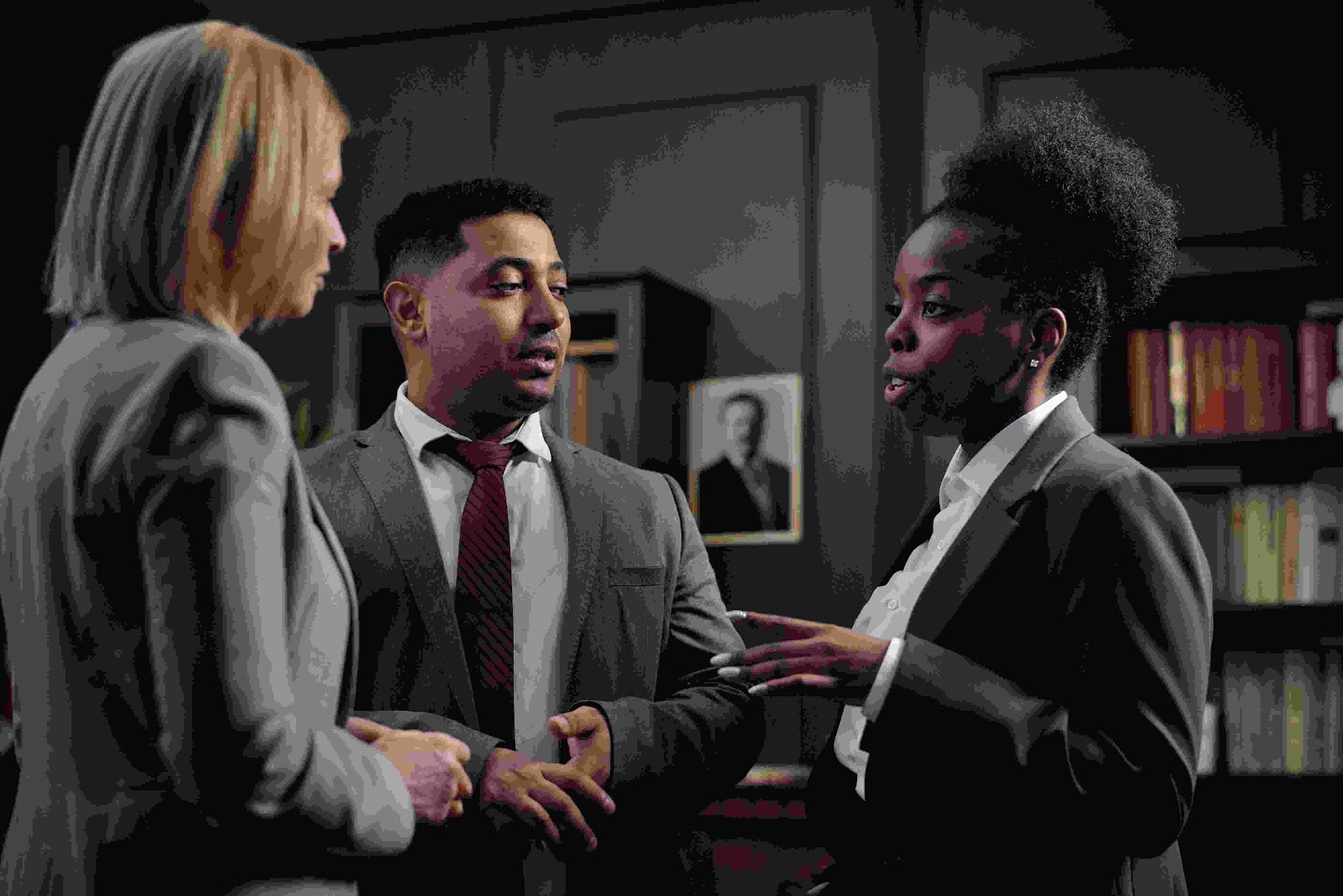Attorney boxed in a corner: strategies to overcome
In this article, we would take a look at the most common reasons that boxed Attorneys in a corner and also highlight some key points to overcome such circumstances.
"Do not show up your debility to anyone for they would target you by your weak point when time comes, claim to be the strongest at all cost"
Attorney boxed in a corner: what does it mean?
When an attorney is said to be "boxed in a corner," it means that they are facing a difficult or challenging situation where they have limited options or strategies to pursue. It is a metaphorical expression often used to describe a lawyer's predicament during legal proceedings, negotiations, or arguments.
Being "boxed in" implies that the attorney's ability to maneuver or find a way out of a tough situation is severely restricted. They may be facing strong evidence against their client, encountering aggressive opposition from the opposing counsel, or dealing with legal or ethical constraints that prevent them from pursuing certain lines of argument.
In such a situation, the attorney may find it challenging to develop a successful defense or advance their case effectively. It doesn't necessarily mean that the attorney is incompetent; it can happen due to the complexity of the case, lack of evidence, or various other factors outside of the attorney's control.
Skilled attorneys will attempt to think creatively and strategically to find any possible paths to improve their client's position, but being boxed in a corner can still pose significant challenges in legal proceedings.
Why does this happen?
Attorneys may find themselves boxed in a corner in the courtroom due to various reasons, some of which include:
1. Unforeseen Witness Testimony:
During trial, witnesses may provide unexpected or damaging testimony that catches the attorney off guard. If this testimony contradicts the attorney's case theory or undermines their strategy, they may struggle to respond effectively.
2. Strong Opposing Counsel:
Facing a skilled and formidable opposing counsel can put an attorney on the defensive. A strong adversary may anticipate the attorney's arguments and effectively counter them, leaving the attorney feeling cornered.
3. Lack of Evidence or Preparation:
Inadequate preparation or a lack of compelling evidence can weaken an attorney's case. Without sufficient supporting material, the attorney may find it challenging to counter the opposing counsel's arguments or establish their own.
4. Unexpected Legal Issues:
Sometimes, unforeseen legal issues may arise during trial, such as the judge's ruling on a critical motion or the introduction of new case law. These developments can significantly impact the attorney's strategy and leave them scrambling to adapt.
5. Hostile Witnesses:
Some witnesses may be uncooperative, evasive, or hostile during cross-examination. Dealing with difficult witnesses can make it difficult for the attorney to extract the desired information or challenge the witness's credibility effectively.
6. Admission of Damaging Evidence:
In some instances, the attorney may inadvertently elicit damaging information from their own witness during direct examination, creating challenges during the trial.
7. Ineffective Courtroom Tactics:
Poorly executed courtroom tactics, such as asking leading questions that are later objected to, may limit the attorney's ability to elicit key information or present their case convincingly.
8. Difficulty in Conveying Complex
Concepts:
If the attorney is dealing with intricate legal or technical concepts, explaining them in a clear and understandable manner to the judge or jury can be challenging. Failure to do so may weaken their argument.
9. Pressure and Stress:
The high-stakes nature of a trial can lead to increased pressure and stress for the attorney. Under these conditions, they may struggle to think clearly and respond effectively to opposing arguments.
10. **Limited Time for Response:** In fast-paced courtroom exchanges, attorneys may have limited time to formulate responses to complex questions or objections, leaving them feeling caught off guard.
11. Lack of Witnesses or Expert Testimony:
If critical witnesses or expert testimony are unavailable or excluded, the attorney may find it challenging to present key elements of their case effectively.
To avoid being boxed in a corner, attorneys must be well-prepared, anticipate potential challenges, and be adaptable during the trial. Strong courtroom skills, thorough case preparation, and the ability to think on their feet are essential attributes that can help attorneys navigate unexpected challenges effectively.
Attorney boxed in a corner: 12 ways to handle such circumstances and move forward
As an attorney, finding yourself backed into a corner in court can be a challenging situation, but it's not uncommon. Here are some steps you can take to handle this situation effectively:
1. Stay Calm and Composed: It's crucial to maintain your composure and not show any signs of panic or frustration. Take a deep breath, gather your thoughts, and focus on the task at hand.
2. Listen Carefully: Pay close attention to the opposing counsel's arguments, questions, and any evidence they present. Understanding their position fully will help you formulate a strategic response.
3. Buy Time if Needed: If you need a moment to think or gather your notes, you can politely ask the court for a brief recess. This can be a helpful tactic to collect your thoughts and regroup.
4. Stick to the Facts: Always base your responses on the facts of the case and the relevant laws. Avoid speculating or making unsupported statements that could weaken your position further.
5. Pivot and Reframe: If the opposing counsel's argument seems strong, consider reframing your own argument or approach. Find alternative angles or emphasize different aspects of your case to counter their points effectively.
6. Address Weaknesses Honestly: If there are weaknesses in your case, acknowledge them honestly. Attempting to hide or downplay weaknesses can backfire and erode your credibility.
7. Be Respectful: Maintain a professional and respectful demeanor towards the court, opposing counsel, and witnesses. Avoid any confrontational or aggressive behavior, as it can reflect poorly on you.
8. Use Persuasive Language: Craft your responses in a persuasive manner, using clear and concise language. Highlight the strongest points of your case and explain their significance to the court.
9. Seek Support from Precedents: If applicable, refer to relevant legal precedents and cases that support your position. This can strengthen your arguments and demonstrate your understanding of the law.
10. Ask for Help if Necessary: If you're uncertain about how to respond to a particularly difficult question or situation, you can request assistance from co-counsel or, if permitted, confer with your client (if they are present).
11. Trust Your Preparation: Draw confidence from the thorough preparation you have done for the case. Knowing your case inside out will boost your confidence and ability to handle unexpected challenges.
12. Be Open to Compromise: If it becomes apparent that your position may not be as strong as you initially believed, be open to discussing settlement or negotiation options that could lead to a more favorable outcome for your client.
Remember, being cornered in court doesn't necessarily mean you've lost the case. The key is to respond thoughtfully, professionally, and strategically to present the best possible defense for your client.


